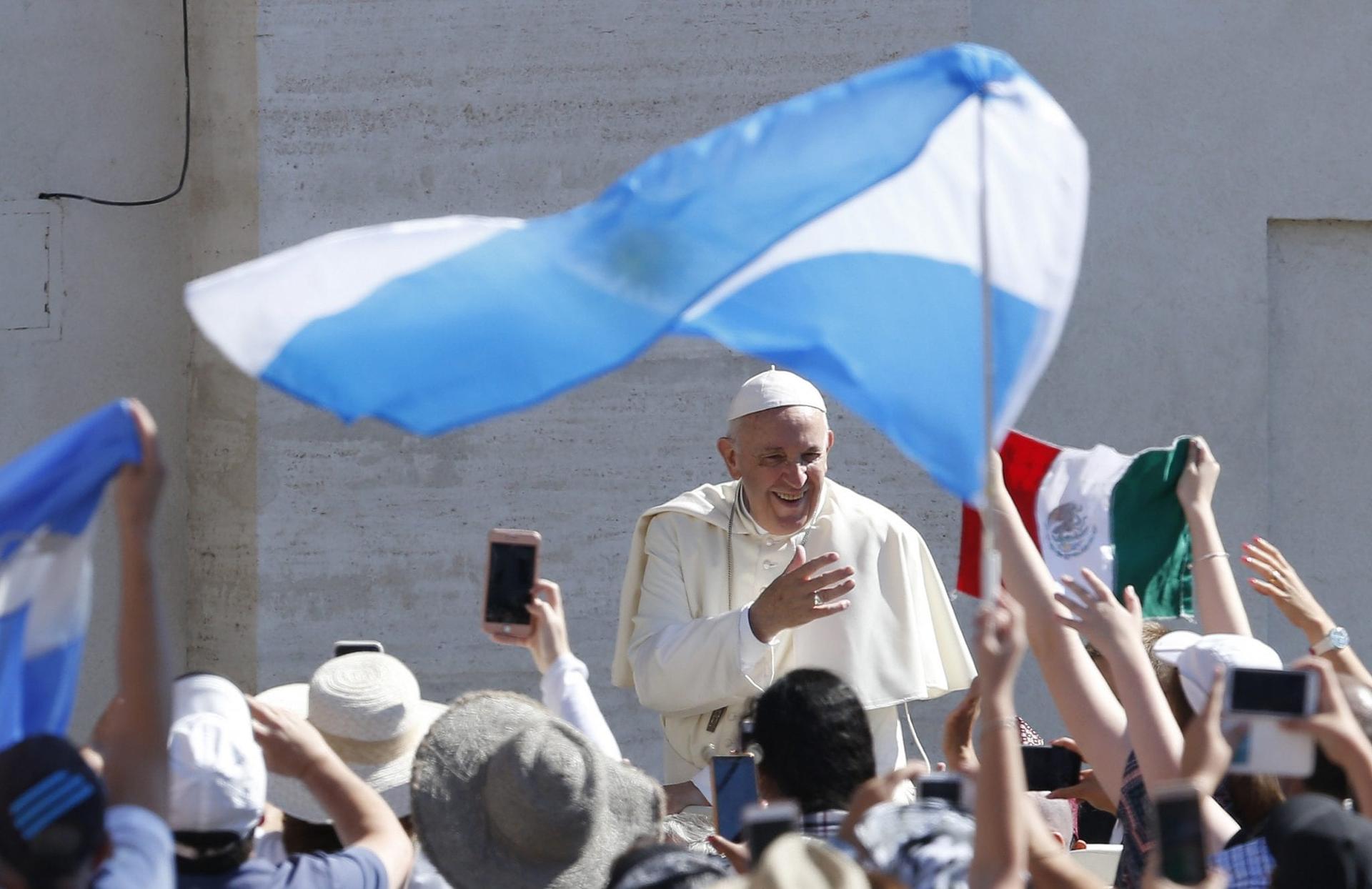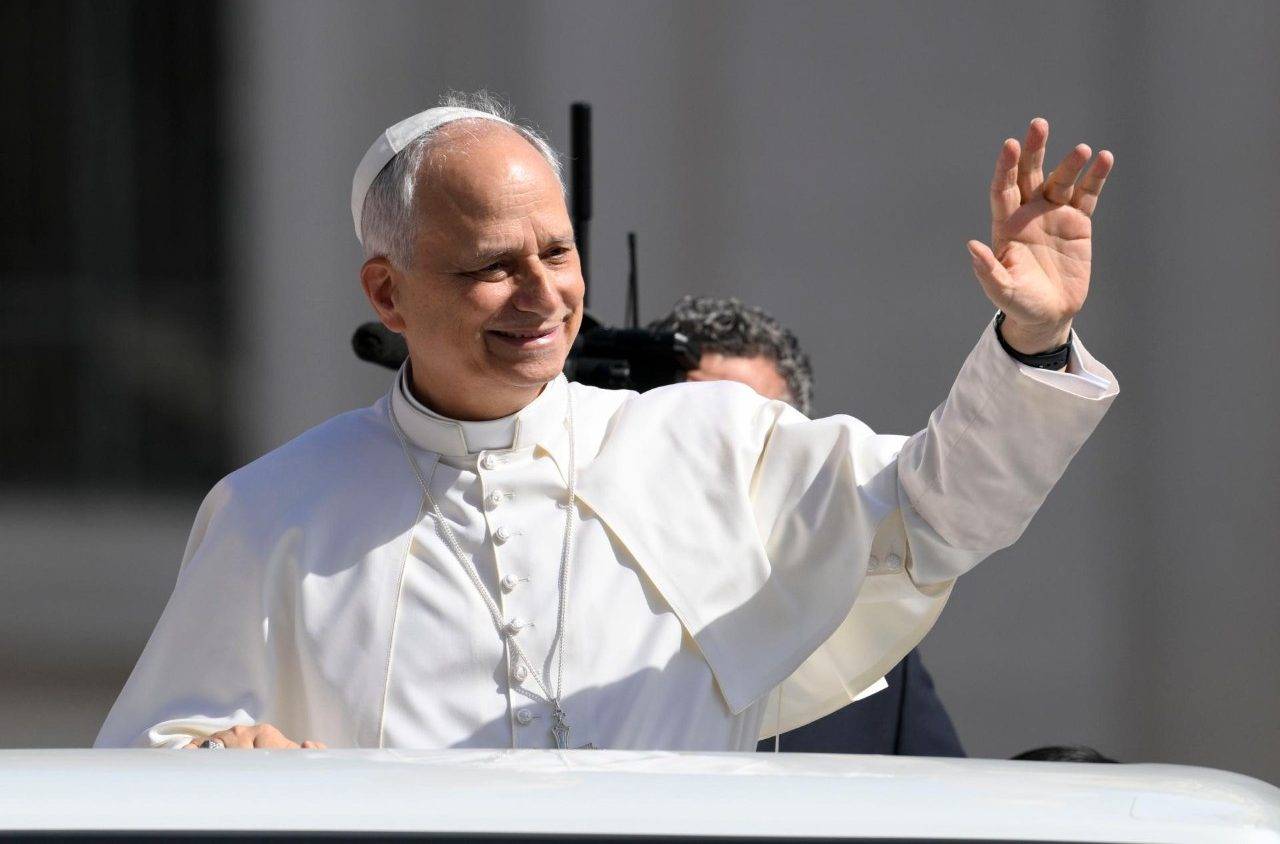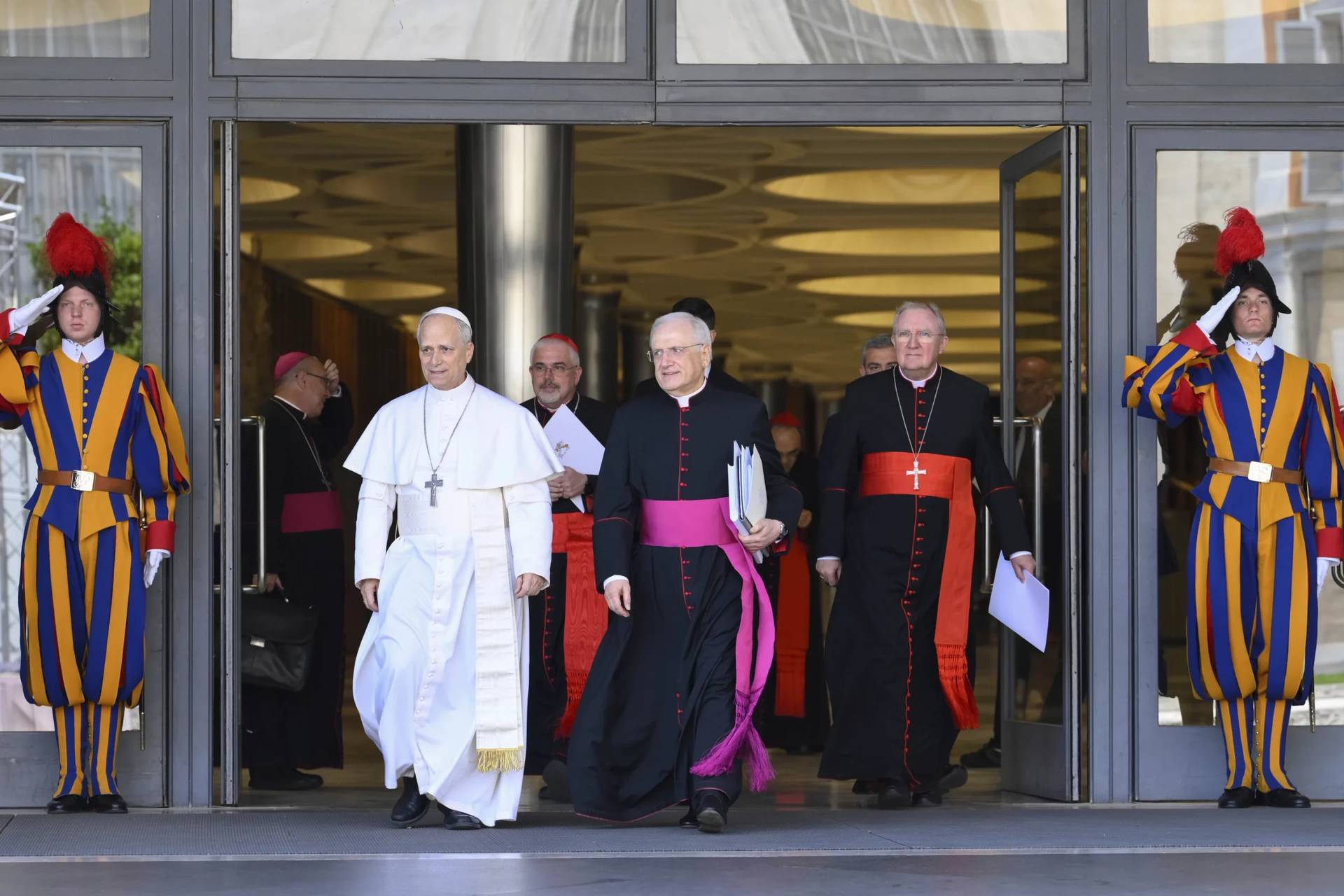ROME — After being away from my home country of Argentina for the past five years, only going back to visit with the family for Christmas and the odd long weekend, I decided to avoid Rome’s scorching summer this year and head back on a reporting mission to take the country’s temperature regarding my fellow Argentinian, Pope Francis.
Beyond the specific stories I came to pursue, I wanted to see if I could find a so-called “Francis effect.” I spoke to several bishops, priests and lay people, all of whom acknowledged that when it comes to Mass attendance, vocations, and the like, there is no such impact, at least not one that can tangibly reverse the country’s rapid secularization.
There is, however, a Francis effect in Argentine society. Perhaps predictably, it’s a mix of both lights and shadows, the bitter and the sweet.
I found fierce, sports-fan-like love for the pope. I saw prayer cards in taxis; pictures with then-Cardinal Jorge Mario Bergoglio baptizing children in the country’s shantytowns; keychains, lighters and every sort of paraphernalia you can think of sporting his face. All of it felt eerily similar to the environment many countries experience before a papal visit.
I discovered that the chapel of the Buenos Aires international airport has a picture of the pope with his arm raised as if blessing a crowd, and I found people who are in love with the approachable image of the man who stops his car to greet a disabled person.
There are those who, knowing they’re direct descendants of the one million Italians who emigrated to Argentina in the first half of the 20th century, love his pro-immigrant stance. There are also those who belong to minority faiths in Argentina, who thank the pontiff for his ecumenical and interreligious efforts.
But I also found vitriol, disappointment, hatred, frustration and finger-pointing. Some of it is arguably merited, some of it unfair, and a big dose of it is media-driven.
Much of the disappointment about Francis is related to perceptions that he’s either too liberal or not liberal enough. There are those who accuse him of having changed Catholic doctrine on marriage or the sacraments, and those who believe he doesn’t have the guts to change doctrine when it comes to gay marriage or the priesthood.
In Argentina, the “who am I to judge?” pope is sometimes seen as a closeted homophobe for saying that children shouldn’t be told they can choose their gender regardless of their biological sex. But at the same time, the pope who once compared abortion “to hiring a hitman to solve a problem” is considered not “pro-life enough” in other quarters, because, according to some, he doesn’t talk about it as much as his immediate predecessors.
And there are those who question his track record when it comes to addressing the clerical sexual abuse crisis.
Such reactions, of course, are hardly confined to what Francis famously referred to as “the ends of the earth.” But I also found several things that are exclusively Argentinian.
I found people who are convinced the pope resents being Argentinian, and people who loved him when he was their confessor but who don’t recognize the man he’s become. There are those who are angry because he’s never come back home, and those who dread the prospect of a papal visit next year.
At a wine tasting in Rosario, a Socialist-run city at the heart of Argentina’s most fertile land which been dubbed the “future Medellin” due to the influence of organized crime, I found people who believe the pope has forgotten them. Worse still, some believe he’s so focused on his country’s politics that he continues to be the leader of the opposition. These Argentines believe he wants to bring down the center-right President Mauricio Macri to guarantee a victory for former president Cristina Fernandez de Kirchner, now running as the Vice Presidential candidate of Alberto Fernandez, and who’s both the popular and populist half of that equation.
The Kirchners – Cristina and her late husband Nestor – ruled Argentina for 12 years, during much of which Bergoglio was seen as the head of the opposition. Among other things, the future pope criticized corruption and poverty on their watch, and in turn the Kirchners snubbed the Buenos Aires archbishop on several highly public occasions.
I found people from Macri’s government who resent the pope for “not smiling more” when he welcomed the president to Rome in 2016 – never mind that the pontiff greeted him with his wife, Juliana Awada, breaking protocol, as she’s his third wife. Traditionally speaking, when the pope greets the spouse of a president who’s only civilly wed, the spouse would be welcomed separately.
These same people, fueled by a Financial Times report refuted both by Fernandez and the Vatican and defined as “science fiction” by a local bishop, believe the pope has meddled in local politics by compelling Fernandez to reconcile with Kirchner. They blame Francis for the fact that Peronist-led populism has a strong chance of taking power, after the Fernandez-Fernandez ticket won recent primaries by a 15-point margin.

Never mind that days before the primaries, Francis gave an interview to Italian daily La Stampa bashing populism. And never mind either that inflation is through the roof, that 35 percent of Argentines live under the poverty line or that the country’s economy has what the New York Times has dubbed a “gargantuan” problem.
On the opposite side of the street, I found Argentines afraid Francis will try to “cash in the favor” allegedly owed to him by the left-wing ticket, attempting to quash Fernandez’s promise to legalize abortion and further LGTBQ+ rights.
Confused? Welcome to the alternative reality that Argentina seemed to be during the six weeks I spent there.
Having spoken with friends and foes, Catholics, Evangelicals, priests, lay people, pro-lifers and pro-choicers, clerical abuse victims, journalists, academics, politicians and your anonymous wine connoisseurs, I found out that some Argentines love to hate the pope and others hate to love him.
In both cases, much of the time, it’s for the wrong reasons and without all the facts.
After more than a month back home, here’s my conclusion: Almost nowhere else on earth does the media feel such an investment in the pope, yet despite that, many Argentinians have a perception of Francis informed more by local politics and personal predilection than the full range of his words and deeds, illustrated perhaps by the fact that, more often than not, due to budgetary cuts, there’s no Argentine outlet traveling with the pope.
As a result, there is indeed a Francis effect in his native country, but it’s as much a story of heartburn as heroism, and of irritation as inspiration.
Follow Inés San Martín on Twitter: @inesanma
Crux is dedicated to smart, wired and independent reporting on the Vatican and worldwide Catholic Church. That kind of reporting doesn’t come cheap, and we need your support. You can help Crux by giving a small amount monthly, or with a onetime gift. Please remember, Crux is a for-profit organization, so contributions are not tax-deductible.















